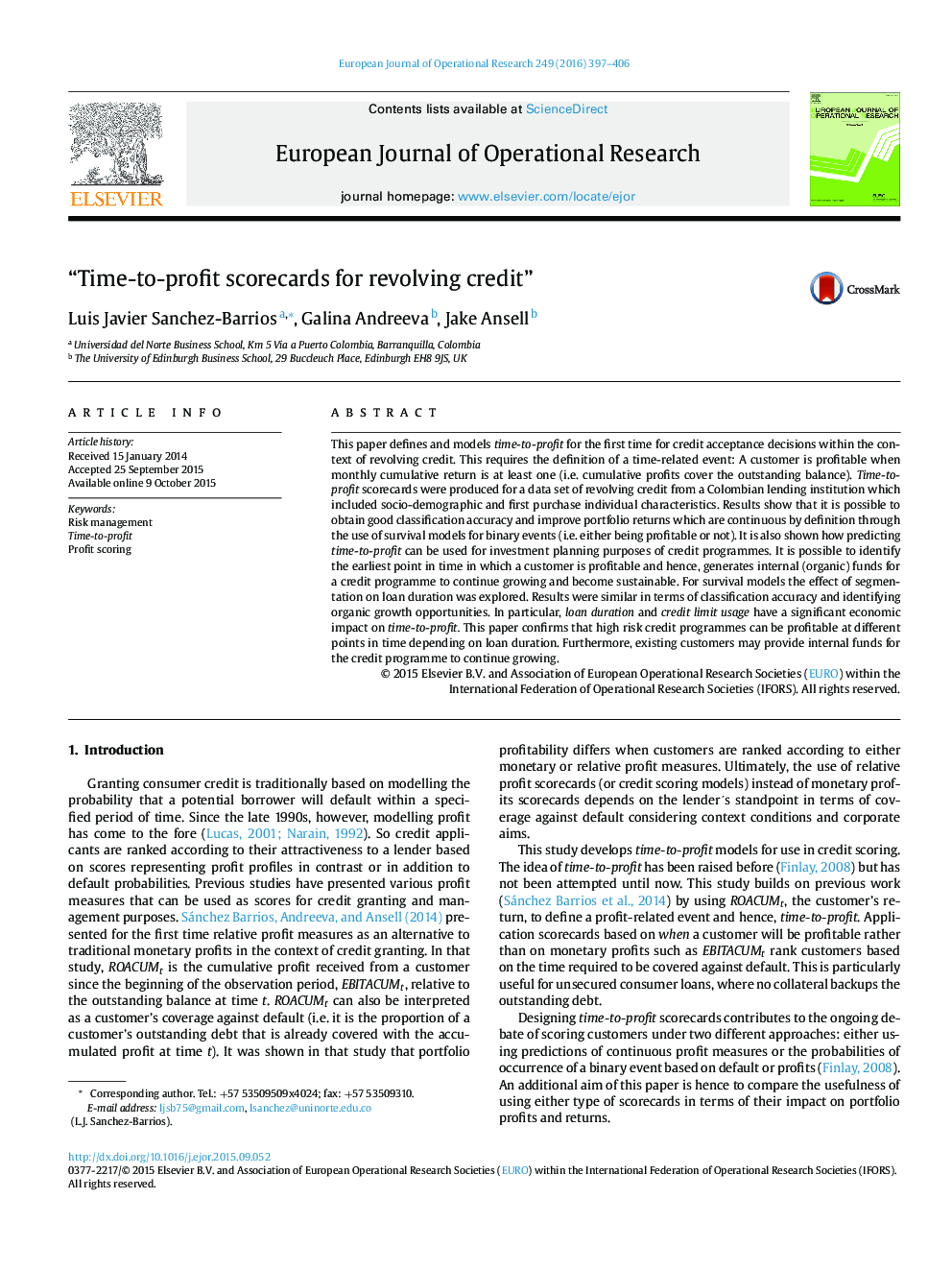| Article ID | Journal | Published Year | Pages | File Type |
|---|---|---|---|---|
| 480715 | European Journal of Operational Research | 2016 | 10 Pages |
•Time-to-profit is modelled for credit acceptance of revolving credit.•Time effect on hazard of being profitable is investigated through survival models.•The linear hazard model outperformed other time dependent models.•Time-to-profit scorecards outperformed OLS scorecards as of portfolio returns.•Predicting time-to-profit can be used to determine credit programme sustainability.
This paper defines and models time-to-profit for the first time for credit acceptance decisions within the context of revolving credit. This requires the definition of a time-related event: A customer is profitable when monthly cumulative return is at least one (i.e. cumulative profits cover the outstanding balance). Time-to-profit scorecards were produced for a data set of revolving credit from a Colombian lending institution which included socio-demographic and first purchase individual characteristics. Results show that it is possible to obtain good classification accuracy and improve portfolio returns which are continuous by definition through the use of survival models for binary events (i.e. either being profitable or not). It is also shown how predicting time-to-profit can be used for investment planning purposes of credit programmes. It is possible to identify the earliest point in time in which a customer is profitable and hence, generates internal (organic) funds for a credit programme to continue growing and become sustainable. For survival models the effect of segmentation on loan duration was explored. Results were similar in terms of classification accuracy and identifying organic growth opportunities. In particular, loan duration and credit limit usage have a significant economic impact on time-to-profit. This paper confirms that high risk credit programmes can be profitable at different points in time depending on loan duration. Furthermore, existing customers may provide internal funds for the credit programme to continue growing.
